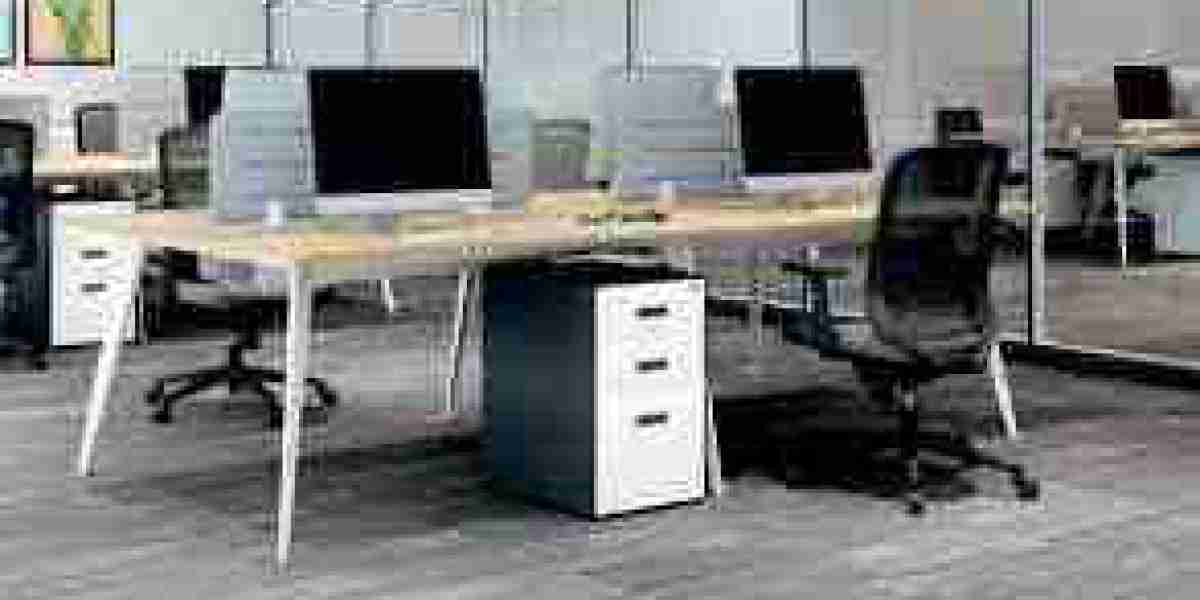In the ever-evolving landscape of modern office design, modular workstations have become a popular choice for businesses seeking flexibility, collaboration, and adaptability in their work environments. These modular workstations offer a range of benefits, from efficient space utilization to improved employee well-being. But what sets apart exceptional modular workstations from the rest is the integration of technology. In this blog, we will explore the pivotal role that technology integration plays in enhancing the functionality and effectiveness of modular workstations.
Understanding Modular Workstations:
Before delving into the role of technology, let's establish what modular workstations are and why they are so widely adopted in contemporary office design. Modular workstations are essentially flexible, customizable, and reconfigurable office furniture systems. They consist of individual components that can be combined, rearranged, or expanded to meet the specific needs of an organization's workspace.
Benefits of Modular Workstations:
The appeal of modular workstations lies in their adaptability and versatility. They offer several advantages, including:
Space Efficiency: Modular workstations make the most of available space, allowing organizations to optimize square footage and accommodate a larger number of employees.
Flexibility: The ability to reconfigure workstations easily enables organizations to adapt to changing work dynamics, team sizes, and projects.
Collaboration: Modular workstations are designed to encourage collaboration and interaction among team members, promoting creativity and productivity.
Cost Savings: These workstations are cost-effective in the long run because they can be reused, reconfigured, and expanded without the need for significant investments in new furniture.
The Role of Technology Integration:
While the inherent advantages of modular workstations are undoubtedly appealing, technology integration takes their functionality to the next level. Here's how technology plays a pivotal role in enhancing modular workstations:
- Connectivity and Power Management:
In a tech-driven world, connectivity and power management are essential in the workplace. Modular workstations equipped with integrated power outlets, USB ports, and cable management solutions help employees stay connected and powered up throughout the day. This seamless integration reduces clutter, enhances organization, and minimizes the frustration of hunting for outlets.
- Ergonomics and User Experience:
Technology integration in modular workstations also caters to ergonomics and user experience. Height-adjustable desks, monitor arms, and keyboard trays can be seamlessly incorporated into the workstation design. This enables employees to personalize their workspaces, promoting comfort and well-being while reducing the risk of musculoskeletal issues.
- Acoustic Solutions:
Open office layouts can sometimes suffer from noise and distractions. Technology integrated into modular workstations can include acoustic panels and sound-absorbing materials to create quieter and more focused work environments. This enhances productivity and employee satisfaction.
- Collaboration Tools:
Modular workstations are designed to foster collaboration, and technology plays a key role in this aspect. Integrating interactive whiteboards, video conferencing equipment, and collaborative software tools into workstations facilitates seamless communication and teamwork, regardless of physical location. This is particularly important in today's world, where remote and hybrid work arrangements are becoming increasingly common.
- Privacy and Concentration:
Balancing collaboration with the need for privacy and concentration is a critical consideration in office design. Modular workstations with integrated technology can include features such as privacy screens, adjustable lighting, and noise-cancelling headphones, creating a more accommodating environment for employees who require focused work.
- Data and Security:
With the increasing reliance on technology, data and cybersecurity are paramount concerns. Technology-integrated workstations can include secure storage solutions for electronic devices, as well as built-in locks and security features to protect sensitive information.
- Customization and Personalization:
Incorporating technology into modular workstations allows for a high degree of customization. Employees can choose from a range of tech features and accessories that align with their work style and preferences. This not only enhances the functionality of the workstation but also empowers employees to create a workspace that suits them best.
- Sustainability:
Sustainability is a growing focus in office design. Technology integration in modular workstations can also address eco-friendly concerns. For example, the use of energy-efficient lighting, sustainable materials, and modular components that are easy to recycle or repurpose can contribute to a greener office environment.
Challenges in Technology Integration:
While the integration of technology into modular workstations offers numerous advantages, there are some challenges to consider. These include:
Initial Costs:
High-quality technology integration can come with a significant initial cost. Organizations must weigh this against the long-term benefits and cost savings.
Compatibility:
Ensuring that all integrated technologies are compatible and can be seamlessly updated or replaced can be a complex task that requires ongoing attention.
Maintenance and Support:
Regular maintenance and support are crucial to keeping integrated technologies functioning optimally. Organizations need to have plans in place for addressing technical issues promptly.
Conclusion:
The role of technology integration in modular workstations is undeniable. It not only enhances the functionality and flexibility of these workspaces but also contributes to employee well-being, productivity, and overall job satisfaction. By embracing technology in their office design, businesses can stay at the forefront of the modern workplace, fostering a dynamic and adaptable environment that meets the needs of today's workforce. As the office landscape continues to evolve, technology-integrated modular workstations will remain a crucial component in creating efficient, effective, and collaborative workspaces.
Experience the pinnacle of versatility with our Modular Office Furniture in Vadodara! From sleek workstations to adaptable storage solutions, we redefine your workspace for maximum efficiency and style.


